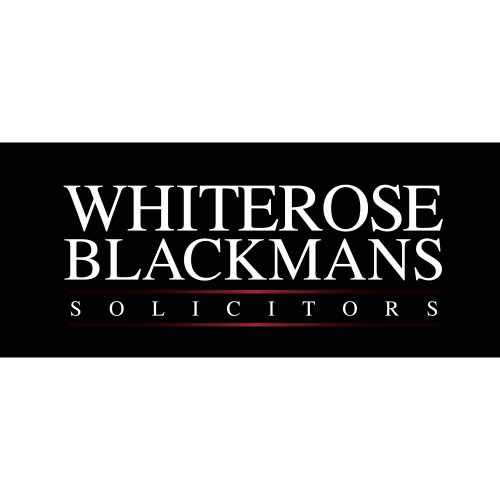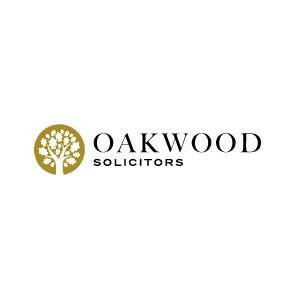Best Inheritance Law Lawyers in Leeds
Share your needs with us, get contacted by law firms.
Free. Takes 2 min.
List of the best lawyers in Leeds, United Kingdom
1. About Inheritance Law in Leeds, United Kingdom
Inheritance law governs how a deceased person’s estate is collected, managed and distributed. It covers wills, intestacy, probate, estate administration and taxes such as inheritance tax. In Leeds, as in the rest of England and Wales, local processes are coordinated through the national probate service and the courts, with the Leeds District Probate Registry handling matters for West Yorkshire.
Key roles in Leeds include executors and administrators who apply for a grant of representation, solicitors who provide advice and draft documents, and tax advisers who handle inheritance tax planning. The law relies on statutory frameworks plus court rules to determine who inherits and how assets are divided. In complex estates, disputes can arise over validity, claiming provisions, or administration duties.
Any residence or property within Leeds or assets held by a Leeds-based individual can trigger local probate steps and potential taxation. Because inheritance matters can involve cross-border assets or overseas property, professional guidance is often essential to navigate complexities and avoid delays. For practical guidance, rely on official sources such as GOV.UK and HM Courts & Tribunals Service.
Government guidance emphasises that probate applications and the grant process can be straightforward for simple estates but may take longer when there are faults or disputes.Source: gov.uk guidance on probate and wills
Useful official links include GOV.UK and HM Courts & Tribunals Service resources. They provide up-to-date information on probate, wills, intestacy, and inheritance tax that applies across Leeds and the wider United Kingdom. See the references at the end of this guide for direct access.
2. Why You May Need a Lawyer
Here are concrete, Leeds-specific scenarios where you would typically benefit from legal help in inheritance matters. Each example reflects real-world situations that Leeds residents commonly encounter.
- A spouse in Leeds suspects a will is invalid due to improper witnessing or missing signatures. A solicitor can assess testamentary formalities under the Wills Act 1837 and advise on potential challenges or corrections.
- An executor in Leeds discovers overseas assets and differing tax regimes. A lawyer can coordinate probate across jurisdictions and ensure correct reporting to HMRC for Inheritance Tax purposes.
- A Leeds family faces a dispute about the terms of a will left by a relative who owned Leeds property and a business. A solicitor can guide the claim of provision under the Inheritance Act 1975 and help reach a settlement or court resolution.
- There is no will, and the surviving spouse in Leeds may need to navigate intestacy rules to secure their rightful share and plan tax-efficiently. A solicitor can interpret intestacy provisions and manage estate administration.
- The estate includes complex trusts or land held in trust. A legal adviser can explain the administration options under the Administration of Estates Act 1925 and related trust laws to protect beneficiaries.
- Executors in Leeds want to appoint professional professionals and avoid conflicts of interest. A solicitor can act as professional executor or advise on a professional- led administration strategy.
- A potential claim is raised under the Inheritance Act 1975 by a dependent who believes they were inadequately provided for. A lawyer can assess eligibility and represent the claimant’s interests in negotiations or court proceedings.
Engaging a solicitor, a professional will drafter, or a conveyancer with inheritance experience can reduce delays, clarify duties, and help manage costs. For basic guidance, you can start with GOV.UK resources and then consult a local Leeds solicitor for tailored advice.
3. Local Laws Overview
Inheritance Act 1975
The Inheritance Act 1975 provides a mechanism for certain family dependants to claim reasonable provision from an estate. It applies when a person dies leaving dependants who were inadequately provided for in the will or under the rules of intestacy. The act has been amended by subsequent legislation, including the Inheritance and Trustees' Powers Act 2014, to reflect modern family structures. In Leeds, as elsewhere, claims are typically heard in the High Court or county court depending on the value and complexity of the case.
Key elements include eligibility of dependants, the standard of provision required, and the court's discretion to adjust legacy arrangements. If a claim succeeds, the court can order payment, a transfer of assets, or other arrangements to meet the dependants' needs. For more details, see GOV.UK explanations of the Act and related provisions.
Recent context: The 2014 amendments modernised several aspects of intestacy and dependants' rights, aligning them with contemporary family arrangements. This remains a live area when contested in Leeds courts or registries. For official commentary, refer to GOV.UK guidance.
In practice, many Inheritance Act claims resolve through settlement, but court determination occurs when settlement is not possible.Source: GOV.UK guidance on inheritance claims
Inheritance Tax Act 1984
The Inheritance Tax Act 1984 governs the taxation of estates on death. The standard rate is 40 percent on the portion of an estate above the nil-rate band, with reliefs and exemptions applying in specific circumstances. The nil-rate band and other reliefs are periodically updated by Parliament through Finance Acts. In Leeds, as in the rest of the UK, advisers calculate IHT carefully to determine what portion of an estate is liable for tax and when planning is possible to minimise liability.
As of recent years, the Nil-Rate Band and Residence Nil-Rate Band have been central to planning. These thresholds determine when tax becomes payable and how much is due. See GOV.UK for the most current figures and rules.
Practical note: The interplay between the nil-rate band and the residence nil-rate band can significantly affect planning for homeowners in Leeds with property valued above thresholds.
In England and Wales, the IHT threshold at a glance is published each year by HMRC and GOV.UK.Source: gov.uk - Inheritance Tax overview
Administration of Estates Act 1925
The Administration of Estates Act 1925 regulates how an estate is administered after death, including who administers the estate, how assets are gathered, and how liabilities are settled. It provides the framework for obtaining a grant of representation (probate or letters of administration) and for distributing the remainder of the estate to beneficiaries. In Leeds, probate practices follow these statutory provisions alongside court rules and local procedures.
Updates and practice directions may affect how executors and administrators carry out duties, particularly for large or complex estates. For official references, consult GOV.UK guidance on probate and the appropriate court rules.
Administrators must identify all assets and liabilities before distribution to beneficiaries under statutory rules.Source: GOV.UK probate guidance
Other jurisdiction-specific concepts that can impact Leeds cases include cross-border assets, domicile for inheritance tax considerations, and the treatment of trusts under the TLATO framework. For a complete view of current law, consult GOV.UK, HMRC and the Judiciary pages referenced in the Resources section.
4. Frequently Asked Questions
What is probate and why is it needed in Leeds?
Probate is the legal process to validate a will and appoint an executor to deal with the deceased person’s assets. In Leeds, probate confirms who is legally authorised to administer the estate and collect assets. It is needed to transfer property and liquidate assets for beneficiaries.
How do I apply for probate in Leeds?
You apply for probate online or by paper form via the Probate Registry. The application requires the death certificate, the will, and details of the estate. An executor or administrator usually completes the forms with professional help.
What is intestacy and who inherits in Leeds?
If there is no valid will, intestacy rules apply. In Leeds, the surviving spouse or civil partner may receive a share, with other family members inheriting additional portions. The exact distribution depends on who survives the deceased and whether there are children or other dependants.
How much does probate cost in Leeds?
Probate costs include government probate fees and professional charges. The government fee structure is set nationally and can vary with online versus paper submissions. Solicitors often charge for preparation, advice, and administration of the estate.
How long does probate take in Leeds?
Typical straightforward probate can take several weeks to a few months. More complex or disputed estates can take 6-12 months or longer. Timeframes depend on asset complexity, the existence of overseas assets, and any claims or challenges.
Do I need a solicitor to make a will in Leeds?
No, a will can be drafted without a solicitor, but a solicitor helps ensure valid form, correct witnessing, and avoidance of common mistakes. Local Leeds solicitors can also tailor the will to minimise tax and ensure executors are prepared.
What is the Inheritance Act 1975 and who can claim?
The Act allows certain dependants to claim reasonable provision from an estate. Eligibility depends on the relationship to the deceased and the dependants' needs. A claim can arise even if a will exists, if provision is deemed inadequate.
What is the difference between a will and a trust in Leeds?
A will expresses how assets should be distributed after death, while a trust can hold assets during life or after death. Trusts can offer tax planning or asset protection and may require separate administration.
Can a will be challenged in Leeds?
Yes. Wills can be challenged on grounds of lack of capacity, undue influence, fraud, or improper execution. A successful challenge can alter asset distributions or invalidate a provision.
Should I appoint a professional executor or a family member in Leeds?
Appointing a professional executor can provide experience and impartiality for complex estates. A family member may be appropriate for simple estates but may face conflicts or delays.
Do I pay inheritance tax on a Leeds estate?
Inheritance tax may be payable if the estate exceeds thresholds. The rate and reliefs depend on the total value and reliefs such as the residence nil-rate band. Planning opportunities can reduce liability with professional guidance.
Is it possible to contest a will in Leeds without going to court?
Often disputes are settled through mediation or negotiation. Court action may be necessary if a fair settlement cannot be achieved. A solicitor can explain options and guide you through the process.
5. Additional Resources
- GOV.UK - Wills, probate and inheritance: Official guidance on wills, probate, and inheritance tax for England and Wales. Link
- GOV.UK - Inheritance Tax: Current rules, thresholds, and reliefs for inheritance tax. Link
- GOV.UK - Probate guidance: Details on applying for probate, grants, and administration. Link
6. Next Steps
- Identify your objective and decide whether you need a probate, will update, or trust planning. Timeframe: 1-2 days.
- Gather essential documents including the will (if any), death certificate, asset lists, and contact details of banks and property records. Timeframe: 1-2 weeks.
- Search for a Leeds-based inheritance law solicitor or conveyancer with relevant experience. Timeframe: 2-3 weeks.
- Arrange an initial consultation to discuss circumstances, costs, and likely timelines. Timeframe: 1-3 weeks after selecting a lawyer.
- Obtain a written engagement letter outlining scope, fees, and responsibilities. Timeframe: 1-2 weeks after consultation.
- Prepare your case, provide requested documents, and begin the probate or claim process. Timeline: 6-12 months for straightforward estates; longer for complex cases.
Lawzana helps you find the best lawyers and law firms in Leeds through a curated and pre-screened list of qualified legal professionals. Our platform offers rankings and detailed profiles of attorneys and law firms, allowing you to compare based on practice areas, including Inheritance Law, experience, and client feedback.
Each profile includes a description of the firm's areas of practice, client reviews, team members and partners, year of establishment, spoken languages, office locations, contact information, social media presence, and any published articles or resources. Most firms on our platform speak English and are experienced in both local and international legal matters.
Get a quote from top-rated law firms in Leeds, United Kingdom — quickly, securely, and without unnecessary hassle.
Disclaimer:
The information provided on this page is for general informational purposes only and does not constitute legal advice. While we strive to ensure the accuracy and relevance of the content, legal information may change over time, and interpretations of the law can vary. You should always consult with a qualified legal professional for advice specific to your situation.
We disclaim all liability for actions taken or not taken based on the content of this page. If you believe any information is incorrect or outdated, please contact us, and we will review and update it where appropriate.














